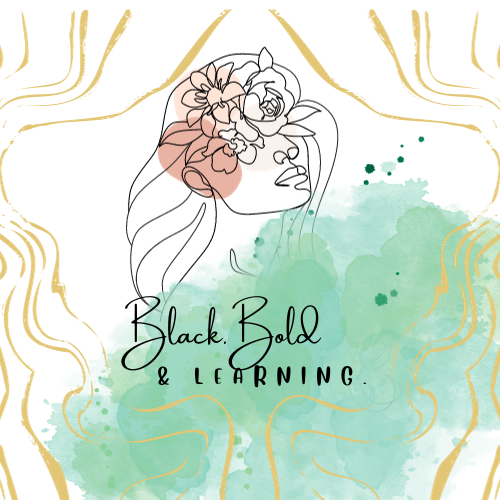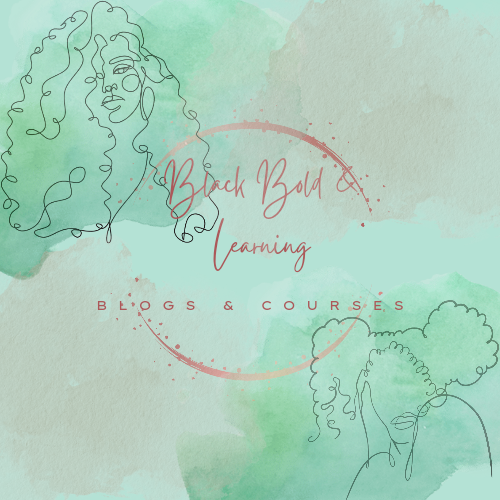How to Deal with Breadcrumbing in Relationships
I was falling for him. He seemed decent, went to church with me, and made me laugh. When he pulled away, I leaned in, naively hoping my affection would somehow "fix" him and turn him into the perfect partner I envisioned. Little did I know, he already knew what he wanted – just not me. In a cruel twist, he'd drop hints with dates, compliments, and late-night reels, making me feel like there was a spark. But then the reality would bite: cryptic texts only when he was bored, deflected questions, and shutdowns whenever I tried to have a deeper conversation. When I finally pulled away, he'd lean back in, wanting my attention but not my connection. Calling him out on his inconsistency sparked defensiveness, confirming my suspicion. Blocking him wasn't about anger, but about protecting myself. He didn't want a real relationship, just to keep me orbiting like a satellite until someone "better" came along. That, my friends, is breadcrumbing in its purest form.
Low self-esteem and anxious attachment styles can be strong predictors of falling victim to bread=crumbing. When we doubt our worth and believe we don't deserve better, we can end up accepting unacceptable behavior. In this warped dynamic, our desire to "fix" someone else becomes entangled with a belief that we ourselves are somehow broken, leading us to settle for the bare minimum of affection. So, what exactly is bread-crumbing?
Understanding Bread-crumbing
Why You Deserve More Than Flickering Flames and Scattered Crumbs?
Bread-crumbing is a deceptive dance in relationships where someone emotionally immature showers you with attention (think love bombing and grand gestures) to hook you. Just as you get comfortable expecting this warmth, they pull away, leaving you confused and craving more. This push-pull dynamic, sadly, feeds on low self-esteem and anxious attachment styles. We might blame ourselves, question what we did wrong, and believe fixing them means accepting the crumbs of affection they toss our way.
But here's the truth: you deserve a full feast, not flickering flames. Let's unpack bread-crumbing's toxic recipe and empower you to recognize its signs:
Inconsistent communication: Messages dwindle from daily bursts to radio silence, punctuated by occasional, unexpected resurgences.
Mixed signals: Words say one thing, actions scream another. They might declare adoration but vanish when you need genuine connection.
Hot and cold behavior: Intense initial interest abruptly cools, leaving you questioning their sudden detachment.
Unsubstantial gestures: The occasional compliment or fleeting date, never amounting to true commitment or emotional investment.
Deflection and stonewalling: Attempts to avoid deeper conversations, shutting down discussions about your needs or concerns.
Recognize these? Congratulations, you're not alone. But there's good news: you can break free.
We'll explore:
Coping skills: How to reclaim your power and set healthy boundaries.
Self-worth building: Recognizing your inherent value and refusing to settle for crumbs.
Alternative relationship patterns: Seeking genuine connection built on mutual respect and consistent effort.
This journey toward healthy partnerships starts with understanding breadcrumbing and refusing to accept anything less than the love and respect you deserve. Remember, you're worthy of a full flame, not flickering embers.
The Poisoned Crumbs: How Bread-crumbing Wrecks Your Well-Being
For me, breadcrumbing isn't just a mild annoyance; it's a cruel form of manipulation. Whether intentional or not, it's the mark of someone emotionally unhealed, leaving us in their toxic wake.
Breadcrumbing's insidious venom starts with self-doubt: "What did I do wrong?" "Why am I so anxious?" The endless cycle of chasing and questioning shatters self-esteem, replacing it with a gnawing sense of worthlessness. No matter how we bend to their whims, they push us away, only to reel us back in, trapping us in an exhausting push-pull.
The Impact and Damage
The damage extends beyond the immediate relationship. How can we trust again, build healthy connections, when the echoes of "Do they like me?" and "Am I good enough?" haunt every interaction? We become hypervigilant, interpreting every nuance as confirmation or rejection.
Worse, the vulnerability we share, hoping for intimacy, becomes a weapon wielded against us. Our traumas, our secrets, become tools to keep us hooked, orbiting them like desperate satellites. Their inconsistency – the Jekyll and Hyde syndrome of kindness and cruelty – keeps us off-balance, forever seeking their approval, blind to the emotional abuse.
The more we expose ourselves to someone who can't handle our emotional needs, the more susceptible we become to manipulation. They're unable to be the pillar of support we crave, leaving us depleted and broken.
This is the stark reality of bread-crumbing. It's not just about fleeting attention; it's about emotional sabotage, disguised as affection. But we don't have to stay trapped in this toxic maze.
In the next section, we'll explore ways to break free from breadcrumbing's grip, rebuild self-worth, and finally claim the healthy, fulfilling relationships we deserve. Remember, you are worthy of more than scraps – your heart deserves a banquet.
Your guide to overcoming the breadcrumbs!
My number one recommendation for healing from bread-crumbing is to learn about your attachment style and understand how you were raised to believe what your worth comes from and what you deserve in relationships. Now, that's a loaded process in itself and something we can talk about in future blog posts. However, it's important for you to understand that even though this is the other person's behavior, there's also a reason why we choose to accept their behavior too. And that's worth exploring.
Write without expectation
Start by journaling and reflecting. There's so much healing that can be done when we allow our bodies to release themselves from the trauma and the heartache that we are holding onto. Write your feelings down, do it in paragraphs, do it in poetry, do it in a story, do it in bullet points. But write with no expectations, just get it out of your body.
Talk with people who care for you!
If you find yourself ashamed to talk about what's going on with friends and family, that's already a red flag. You should be able to have open and honest conversations with friends and family about your relationships, and if you feel like you have to hide it, that tells you enough.
Learn about boundaries and assertive communication
I'm a big advocate for setting boundaries and open communication. It's a work in progress, and it's nothing you have to master today. However, I recommend taking a look at what your core values are when it comes to relationships. What needs are not being met in this situationship or relationship? And how can you make sure that you assess that your partner is meeting your needs, or measure if these are the type of relationships you want? That starts by identifying your relationship needs, which may be different than your friendship needs. Start there and set boundaries accordingly. For example, if it's important for me to feel emotionally safe, I want to make sure that my partner doesn't invalidate my feelings when I try to communicate.
Get Some Space and Disconnect
This one is hard, but it's necessary. You have to distance yourself and limit communication with the person. People often fear this because they don't want to sit with the discomfort of anxiety, confusion, low self-esteem, anger and sadness. But what I want to tell you is that emotions are just that—they are just feelings. It's not a reinforcement that you are not worth something. It does not mean that you were not good enough. Laslt, know that the feelings cannot hurt you. They are simply uncomfortable to sit with. If you don't get in the habit of sitting with your emotions, it sucks whenever you finally do it, but it is a necessary part of healing. So I recommend blocking that person and no longer following them on social media. Start small and begin finding ways to distract yourself. Trust me, it will be okay, and you will move past this.
Hold onto this truth!
Finally, remember you are the prize. You are worth being taken care of, and the first thing that we need to do is to take care of ourselves. No, that doesn't mean perfection, but it does mean that you deserve to take yourself out on dates. It means that you deserve to treat yourself well, and it means you deserve to focus on you first. Love yourself unapologetically.
Finding Healthy Relationships
Navigating the search for healthy relationships can feel daunting, especially in your twenties or later. It's easy to get discouraged by curated social media feeds and feel like everyone else has it figured out. But remember, finding genuine connections takes effort and self-awareness. Instead of chasing fleeting flings, consider focusing on strengthening the important relationships already in your life.
Start with your loved ones. Deepen your friendships, share vulnerabilities, and build your support system. Explore communities that share your passions and values. By investing in yourself and fostering healthy connections around you, you'll create a fertile ground for attracting fulfilling relationships naturally. Remember, understanding your needs and boundaries is crucial to breaking free from patterns of attracting emotionally unavailable partners. Self-compassion and knowing your worth are key to ending this cycle.
It's a journey, not a destination, and you're already on the right track. You've made significant progress in this work, and every step forward brings you closer to the genuine connections you deserve.
Crumbs Don't Cut It, Cultivate Connection Instead
Friends, we've conquered breadcrumbing! Or at least we’ve started too! We've built fortresses of boundaries, and planted our seeds of self-love for genuine connection to flourish. Remember, your worth shines brighter than any fleeting validation. This journey may have twists and turns, but you're braver than you think, and the view from the other side is truly magnificent.
Now, how do you navigate the path forward? Every journey is unique, and sometimes we need a helping hand. If you're interested in building stronger boundaries, mastering assertive communication, or navigating the complexities of relationships or eating disorders, consider reaching out to me for a personalized coaching package. Together, we can tailor a plan that empowers you to cultivate the love, respect, and nourishment you deserve.
So, go forth, celebrate your victories, big and small. Share your triumphs and struggles, and remember, no question is too small or too big. This isn't a solo journey, and I'm here to cheer you on every step of the way. You're stronger than you think, and you deserve a feast, not crumbs. Let's bake a love story that makes your soul sing!
Don't hesitate to reach out if you'd like to explore personalized coaching opportunities. Remember, this journey is yours, and I'm here to be your guide on the path to authentic happiness. Thanks for being a part of Black Bold and Learning!




